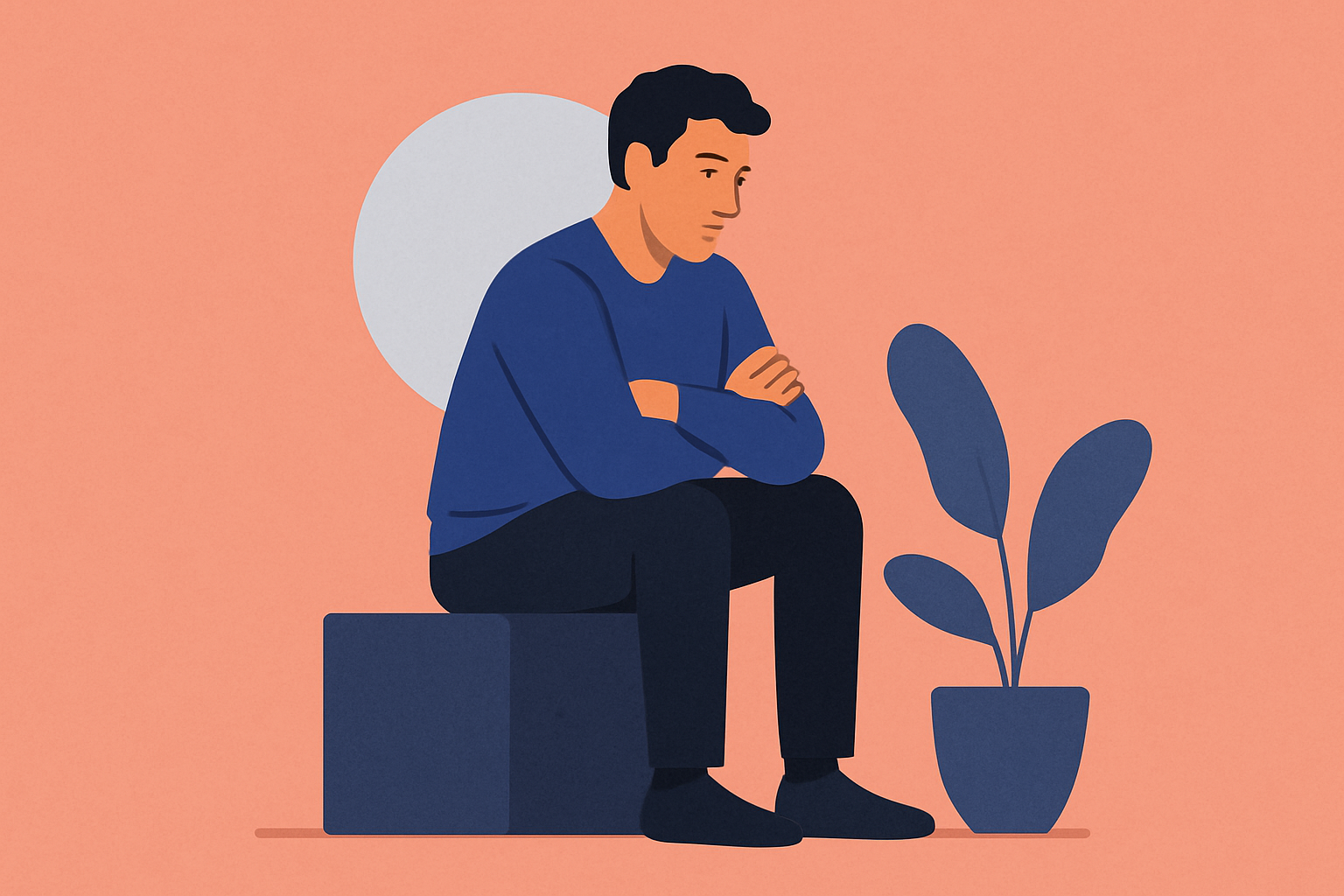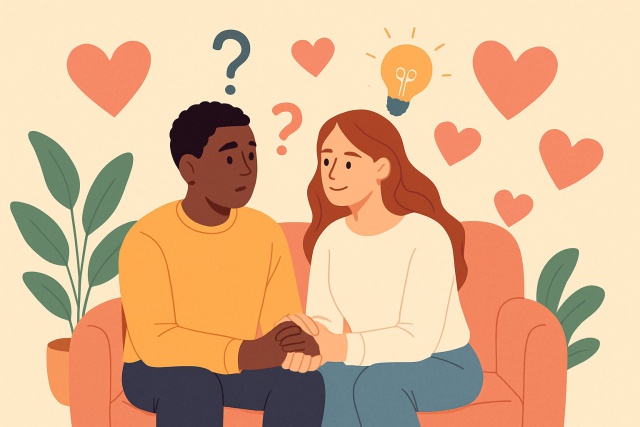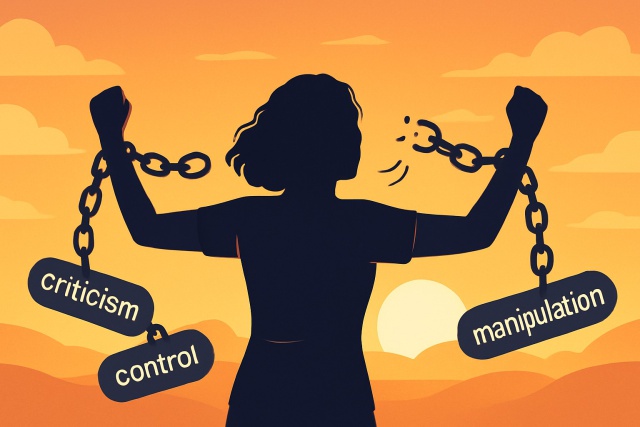
Understanding Intimacy Disorder - Symptoms and Warning Signs
Intimacy disorder disrupts the ability to connect emotionally and physically, often causing confusio...
This article delves into the reasons behind emotional unavailability and offers practical guidance on navigating these challenges in your relationship.
Emotional availability in relationships means being genuinely open and connected while truly tuning in to your partner’s feelings and needs. This is often challenging for emotionally unavailable men, but it's a cornerstone for building trust and fostering closeness and mutual support.
Emotionally unavailable men often struggle to show or share their feelings in relationships. It is more than just coming across as distant or uninterested—it's about deeper challenges in opening up or truly connecting on an emotional level with others.
Men often run into emotional roadblocks that make opening up feel like trying to crack a safe. These hurdles usually stem from deep-rooted fears and past experiences that linger longer than we would like. Society also subtly nudges them to keep their feelings under wraps.
For many men, opening up emotionally can feel like tiptoeing across thin ice—one wrong move and everything might crack. The fear of rejection or judgment tends to loom large. Being vulnerable means laying your true self bare and often sets off defense mechanisms like shutting down or pulling away as if your heart is putting up a "Do Not Disturb" sign. You could think of it as a shield designed to keep pain at bay but also gets in the way of real connection and closeness.
Difficult experiences like childhood neglect or betrayals in past relationships often leave emotional scars that don’t just fade away overnight. These kinds of wounds tend to make it tricky to trust or open up, leading many men to put up protective walls—sometimes so high it feels like Fort Knox—to avoid getting hurt all over again.
Traditional ideas about masculinity often nudge men to keep their emotions under wraps and wear stoicism like a badge of honor. Growing up in that kind of environment usually means vulnerability gets pushed to the sidelines, and sharing feelings turns into somewhat of a no-go zone.
Spotting emotional unavailability usually means tuning into some key behavior and communication quirks. Men who lean towards being emotionally unavailable often dodge heart-to-heart conversations about feelings and pull back when conflicts pop up. They seem to put first their independence over anything resembling emotional closeness.

Emotional unavailability often ties back to deeper psychological patterns such as attachment styles that take root early in life and difficulties managing emotions or personality quirks like introversion or avoidance. Men with an avoidant attachment style tend to instinctively pull away as a self-defense mechanism against emotional pain. When emotions get too intense, hitting the shutdown button can feel like a safer bet.
| Style | Description | Effect on Relationships | Examples |
|---|---|---|---|
| Secure | Comfortable with closeness and trust, no sweat | Builds strong, open connections that last | Freely shares feelings and genuinely trusts their partner |
| Avoidant | Keeps a healthy emotional distance and prizes independence | Often pulls back emotionally and shies away from too much closeness | Avoids deep, heart-to-hearts and worries about leaning on others |
| Anxious | Craves closeness but is haunted by fears of abandonment | Can seem clingy or overly sensitive at times | Frequently seeks reassurance and tends to fret about partner’s feelings |
| Disorganized | Juggles a confusing mix of wanting closeness and fearing it | Creates emotional ups and downs that are hard to predict | Swings between pushing away and pulling in, leaving relationships a bit of a rollercoaster |
Attachment styles crafted in childhood often steer how emotionally available we are as adults. Individuals with a secure attachment style tend to open up their feelings easily while those with an avoidant style often seem distant and keep their emotions at arm's length like a safety net.
Helping men who are emotionally unavailable demands patience, empathy and genuine respect for their boundaries. It’s important to create a judgment-free zone where they feel safe enough to share what’s going on inside.
When emotional unavailability causes ongoing relationship struggles or frequent arguments or makes one or both partners feel isolated, it’s usually a good idea to think about counseling.
Building emotional availability isn't something that happens overnight, especially for emotionally unavailable men. It usually takes self-awareness and a shared effort plus a sprinkle of kindness.
Emotional availability often feels a bit like building a bridge between two people—it’s not something you slap together overnight. It calls for a good dose of patience, a sprinkle of trust, and consistent effort that you can’t really cut corners on. But when that bridge is finally in place, it paves the way to a deeper connection and a kind of lasting trust that’s truly worth the wait.
Absolutely but it really depends on his genuine desire to change. Some professional support often helps make the journey smoother. Change usually happens gradually as he becomes more self-aware and finds new ways to connect emotionally. It’s not something a partner can force out of him. At the end of the day it comes down to whether he’s ready to put in the hard work to break down those long-standing walls.
The key difference lies in the pattern and reasons behind the behavior. Needing space every now and then is totally normal and usually temporary. Emotional unavailability shows up as a consistent habit. It involves avoiding closeness, shutting down during conflicts and struggling to engage emotionally even when their partner is clearly upset. It’s less like taking a breather and more like building a brick wall between you.
There’s no magic number but your well-being has to come first. Look for genuine effort rather than empty promises that sound good but don’t lead anywhere. When you notice steady small steps toward openness and a real willingness to seek help that’s a hopeful sign. If loneliness and rejection become constant or you’re always the one pursuing the connection, it might be time to seriously consider how healthy this dynamic really is.
It’s a mixed situation. Some are painfully aware but feel stuck due to fear or old wounds. Others might not realize how distant they seem and sometimes blame their partner for being "too demanding" instead of recognizing their own avoidance. A gentle caring nudge that points out specific moments can sometimes help open the door to greater self-awareness.
Yes but timing and tone are very important. It’s best to approach it with empathy focusing on "us" rather than "you." Present therapy as a way to strengthen your bond and improve communication for both of you instead of implying something is wrong with him. This approach usually lowers defenses and makes therapy feel less like a personal attack and more like a team effort.

Intimacy disorder disrupts the ability to connect emotionally and physically, often causing confusio...

Insecurities impact relationships quietly but deeply. Learn about common types, how they develop, an...

Recognize common toxic relationship signs early to protect your emotional well-being and foster heal...

Struggling with relationships that always seem to fail? Learn what self-sabotaging relationships rea...